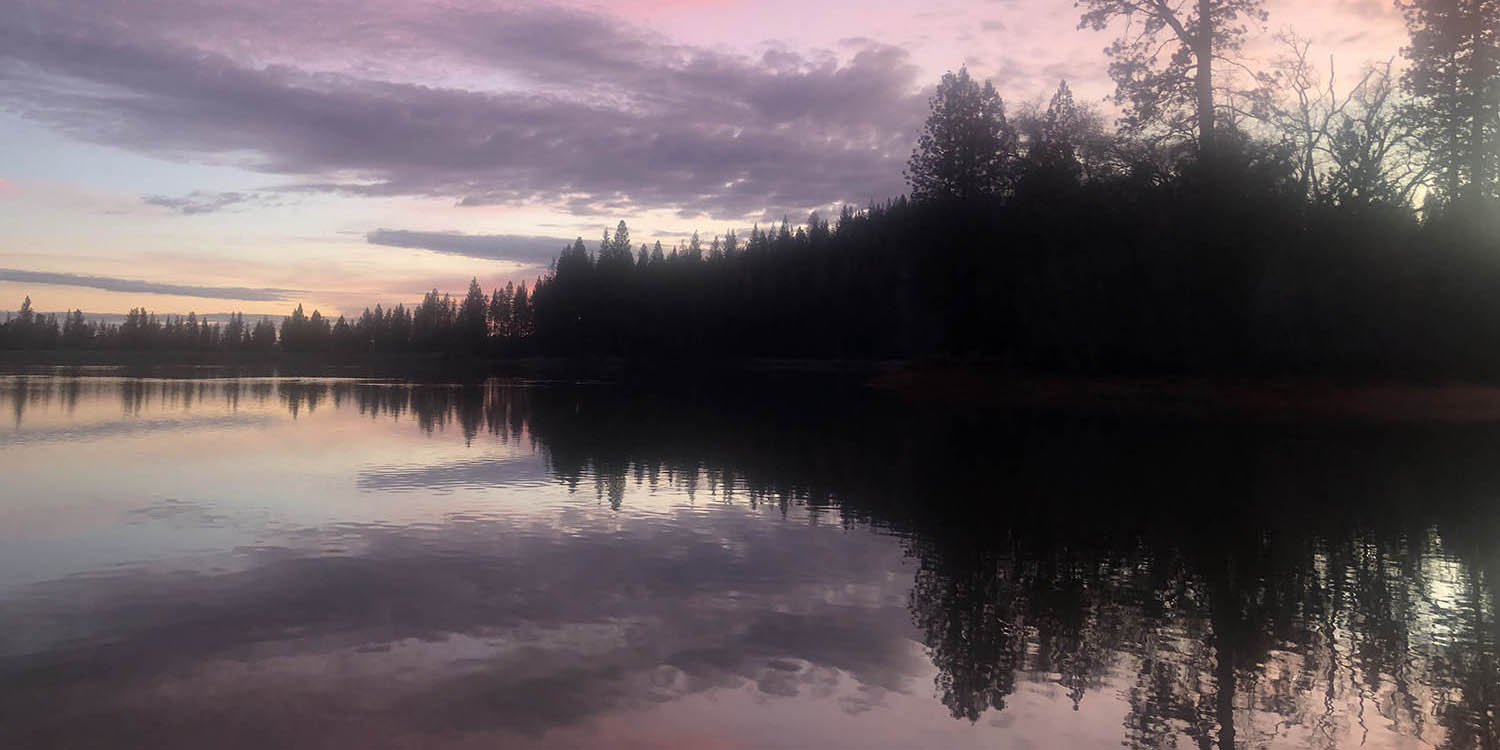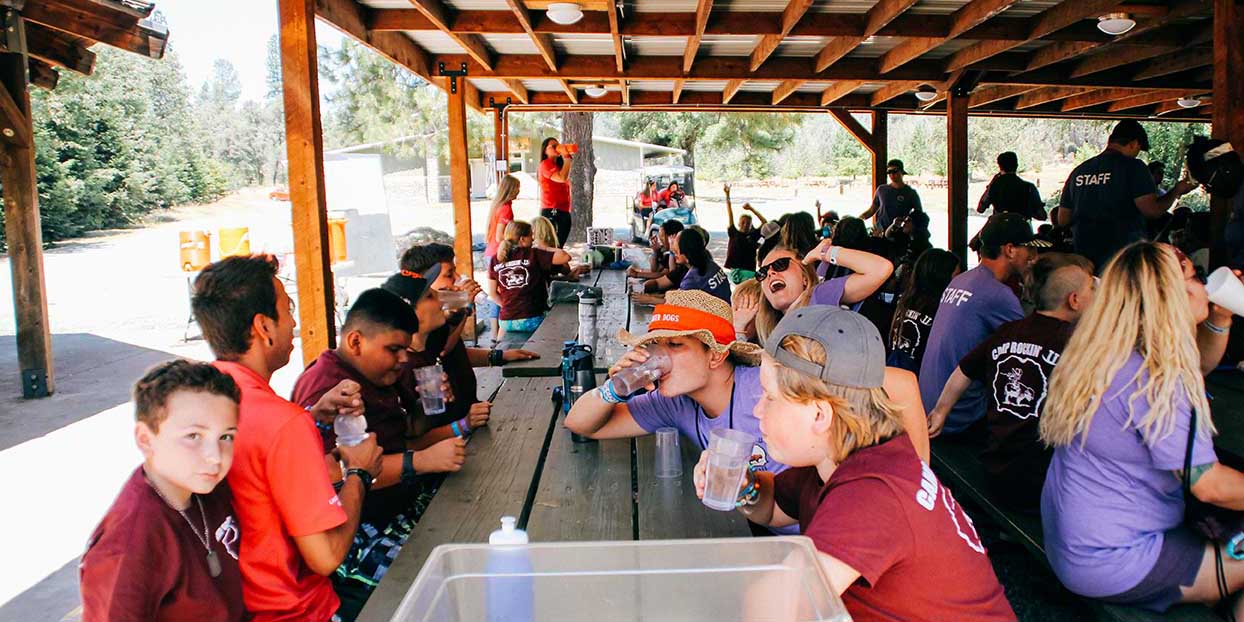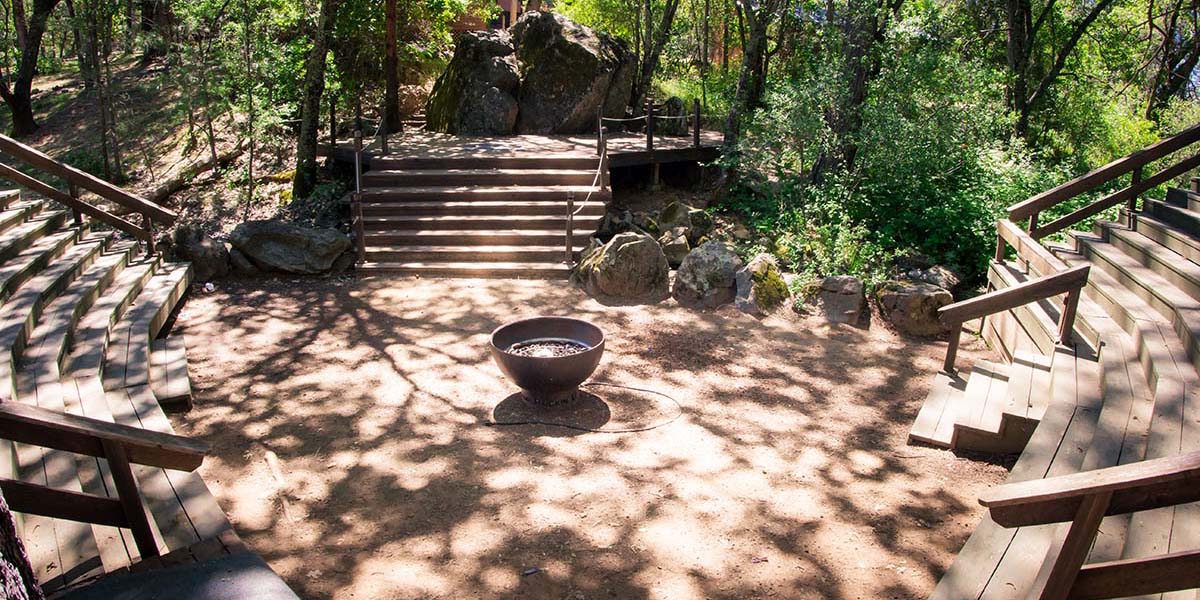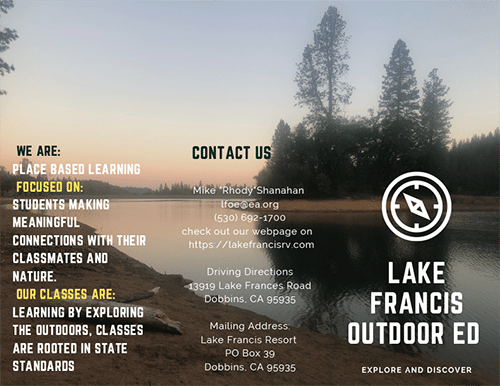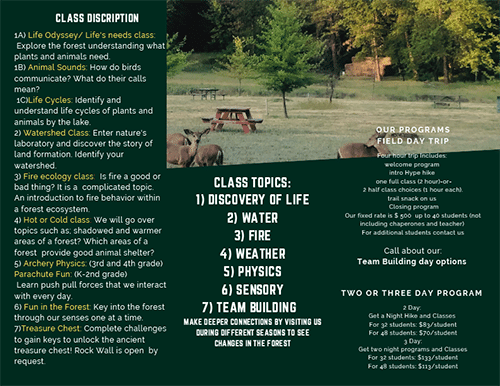Policies & Frequently Asked Questions
We love our forest classroom! Just like at any school, we have expectations for the students that attend. Below you'll find our policies, a packing list, and frequently asked questions about the program.
The FACTS of Life
Generally, students understand that if something is not okay at school, it probably won't be okay at Camp. To help guide students to positive and responsible choices, we've created our "FACTS" of forest life!
Fun = What am I doing to ensure that I, all my friends, and all the adults are having fun?
Attitude = Am I choosing to be positive, helpful, and respectful? To do the right thing? Am I helping others to stay positive, and to always be excited to be at Camp?
Community = How am I making this community better? Am I looking out for my friends? Keeping my cabin clean? Am I sharing food at the table? Am I treating the animals with kindness and respect?
Try New Things = Am I willing to do stuff that I’ve never done before? Do I encourage and support others to try new things, too?
Safety = How do I keep myself and other people safe? Am I getting enough sleep, and drinking water? Do I help my friends up a steep hill? Do I keep my eyes open when I’m near the lake?
Food
We ask that schools send food allergy/dietary information to camp at least two weeks prior to arrival. Trail snacks are provided for all programs. Our standard one-day program does not include lunch.
Electronics
We ask that all students keep phones and other electronic valuables at home. We want an unplugged trip! We do recommend students pack a flashlight and an inexpensive camera if they can. If you do send a disposable point-and-shoot camera, be sure to put the camper’s name on it.
For adults, we understand phones can also be the alarm clock, flashlight and camera. We do ask adults to limit phone use at camp. With that in mind, cell phone coverage at camp is good, depending on your carrier. Wi-Fi is available for break times.
Program Guides
Packing List
Pack your bag, then walk around the house to make sure carrying it feels right. The camper's name should be on all items!
- Sleeping Bag or sheets and blankets
- Pillow
- Towel
- Swim suit (seasonal)
- 2 hats (one for day and one warm hat for night)
- Toiletries
- Sunblock/ bug spray (try to avoid aerosol)
- Any needed medications
- Notebook & pens
- Day backpack
- Water bottle
- 2 pairs of shoes (recommended in case one gets wet
- Rain Boots (No rain boots? No worries! Bring two plastic bread bags that can go over socks if the shoes get wet= keeps socks dry)
- Flip Fops or sandals without a back strap can be used inside the cabin only
- Rain jacket or rain poncho
- Warm jacket
- long pants for the evenings
- A few extra pairs of socks (a clean pair can double as mittens if it gets cold at night)
- One mask per day plus an extra (for indoor use)
Please do not bring: knives or weapons; clothing inappropriate for school; cell phones or tablets.
Please leave valuables and money at home
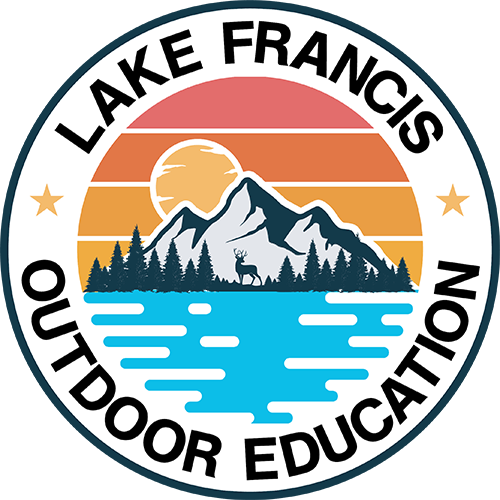 Lake Francis Outdoor Education | Dobbins, CA
Lake Francis Outdoor Education | Dobbins, CA